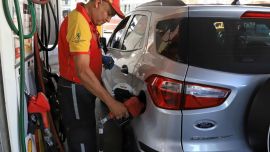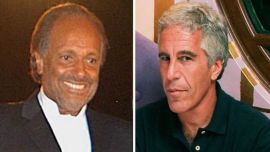Argentina's Foreign Ministry has urged the Nicaraguan government to "respect human rights" after last Sunday's widely criticised election in the Central American nation, while stopping short of questioning the vote's legitimacy.
The portfolio, headed by Foreign Minister Santiago Cafiero, issued a series of social media posts on Monday night after initial results showed that Nicaragua's longtime leader Daniel Ortega had won a fourth straight presidential term. Much of the international community condemned the holding of the vote, describing it as a foregone conclusion and a "sham" election. Most of the 75-year-old former guerrilla's political opponents were either jailed or exiled in the months leading up to the vote.
Responding to initial results – indicating that the party led by Ortega and his wife, Vice-President Rosario Murillo, had taken 75.92 percent of the vote in Nicaragua, with more than 97 percent of polling stations reporting – Argentina expressed concern over the detention of opposition candidates, while declaring that it would maintain its "diplomatic tradition of non-interference in the internal issues of other nations."
"The Argentine Republic ratifies its historic commitment to the defence of human rights and firmly supports the work of the United Nations High Commissioner, Michelle Bachelet, regarding the situation in Nicaragua," said the Foreign Ministry in Buenos Aires.
The statement went on to express "concern at the detention of opposition leaders," while calling for "the Nicaraguan government to ensure respect for the human rights of the entire population."
"Hours after the elections, we maintain our diplomatic tradition of non-interference in the internal affairs of other nations," it added.
"In Argentina, we understand that democracy means respecting ideological diversity and civic participation without proscriptions. We must accompany the Nicaraguan people so that they can recover dialogue and democratic coexistence as soon as possible."
Argentina's tepid response contrasted sharply with most international reaction to the results of the election, which were condemned by Luis Almagro, the secretary general of the Organisation of American States (OAS), as "illegitimate."
"We reject the results of the illegitimate elections in Nicaragua," he tweeted on Monday, adding: "I urge OAS countries to respond to this clear violation of the [Inter-American] Democratic Charter during [this week's] General Assembly."
Nicaragua is now fully "an autocratic regime" after the deeply deficient elections handed Ortega his fifth overall presidential term, the European Union said.
The polls "lack legitimacy" after Ortega "eliminated all credible electoral competition," EU foreign policy chief Josep Borrell said in a withering statement on behalf of the 27-nation bloc, adding further sanctions were being considered.
The election took place without independent international observers and with most foreign media denied access to the country. Critics accuse Ortega of adopting dictatorial tactics and of crushing dissent.
Spain branded the vote "a farce against democracy," with seven would-be presidential challengers detained in Nicaragua since June and the five other contenders who did run dismissed by critics as regime loyalists.
The British government said the ballot was "an election in name only," while US President Joe Biden said its outcome was "rigged" long before the "pantomime election."
On Monday, US Secretary of State Antony Blinken threatened further sanctions and visa restrictions "for those complicit in supporting the Ortega-Murillo government's undemocratic acts."
Faced with international criticism, Ortega lashed out at Spain and the European Union, saying they were led by "fascists" and "Nazi parliamentarians."
Overnight in the streets of the capital Managua, supporters waving red and black flags of Ortega's party celebrated in the Plaza de las Victorias.
"Whether the Yankees like it or not, we rule!" said one woman.
Nicaragua's neighbour Costa Rica, however, said there was no way to determine whether the vote was "credible, independent, free, fair and inclusive."
Uruguay and Colombia were among other Latin American states to not recognise the outcome.
The Nicaraguan Centre for Human Rights (Cenidh) said Nicaragua was a "police state" using tactics of "fear [and] social control" to "crush the opposition."
Opponents said the vote was marked by mass abstention even as the government claimed a turnout of 65 percent.
The Urnas Abiertas independent observatory estimated turnout at a paltry 18.5 percent.
Fear vied with apathy among the 4.4 million Nicaraguans eligible to cast a ballot in the country of 6.5 million.
"No -one from my family went to vote. This was a mockery for Nicaraguans," said a 49-year-old woman who runs a grocery store.
Like many others, she was too scared to give her name.
– TIMES/AFP/NA


























Comments